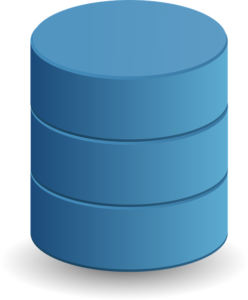An Overview of Customer Data Platforms
Think of how much of your data is collected in every online transaction: first, your search history, IP and demographic, your online behaviour (tracked through analytics), and then your personal user information such as your login, your billing and shipping addresses, your payment information and any correspondence you may have with the business you are transacting with.
All of this data adds up — sometimes to an overwhelming degree. But in order for a business to provide the best, targeted customer experience, they need to be able to manage all of this demographic, analytical and transactional information for each of their customers…and that’s where a CDP comes in.
So what exactly is a CDP?
A customer data platform (CDP) is a data management software that imports customer information from multiple sources or systems, cleans it, organizes it, and creates a single, unified customer profile in the end database. This consolidated, structured end data is then able to be made available to other sales, marketing and customer service systems in a relatively seamless way.

Features of a CDP
Many confuse a CDP with a CRM or DMP, but they are not the same. Most CRMs store only sales-focused, customer transaction information but are missing the user behaviour data. While DMPs do work with that anonymous data (such as that from cookies, IP addresses and device IDs), they do not manage individual customer profiles, only segments of customers with anonymous profiles.
According to the CDP Institute, in order for a system to be classified as a CDP, it needs to have three elements:
- Packaged software: the CDP is a prebuilt system that is configured to meet the needs of each client. Some technical resources will be required to set up and maintain the CDP, but it does not require the level of technical skill of a typical data warehouse project. This reduces the time, cost, and risk and gives business users more control over the system, even though they may still need some technical assistance.
- Creates a persistent, unified customer database: the CDP creates a comprehensive view of each customer by capturing data from multiple systems, linking information related to the same customer, and storing the information to track behavior over time. The CDP contains personal identifiers used to target marketing messages and track individual-level marketing results.
- Accessible to other systems: data stored in the CDP can be used by other systems for analysis and to manage customer interactions.
Benefits of a CDP
CDPs are designed to serve as the go-to ‘hub’ for all customer and customer experience related data and provide numerous benefits:
- Single Source of Data: by collecting customer data from multiple sources and consolidating it into one, unified profile, CDPs give you a comprehensive view of each customer across all devices and channels.
- Accessibility: this allows for multiple departments in an organization to access a single source of truth for each customer, giving them the ability to leverage that unified information in their sales, marketing or customer service processes.
- A Better Customer Experience: because of this, customers receive a better experience as workflows can then be tailored to meet every individual customers’ needs. For example, customer data can be analyzed and used to ensure that products are not promoted or advertised to a customer who has already purchased them.
- Flexibility: as CDPs are designed to integrate with other sales, marketing, customer experience and analytics systems, businesses have a flexible tool which will allow them to take all that data and use it anywhere.
- Operational Efficiency: since multiple data points are consolidated into one accessible system, saving manual consolidation and integrations, significant operational efficiencies can be achieved.
—
If you need to track multiple sources of customer data for your business, CDPs are the evolved data management systems that you should be looking into. They can give you a full, unified view of your customer base, allowing you to deliver the most targeted and relevant, customer-centric marketing campaigns across all of your channels.


